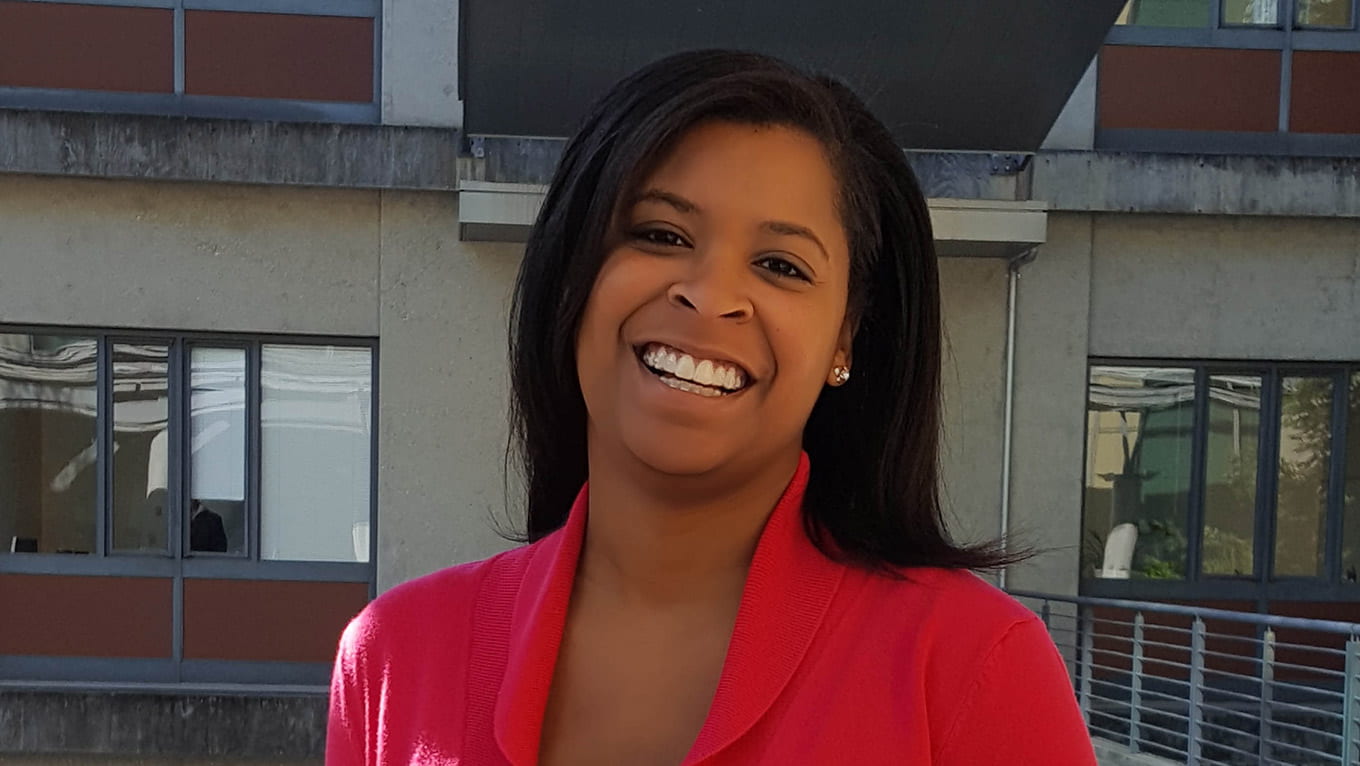Dr. Carmen Robinson has been appointed the first Program Director for Student Excellence, Engagement, and Inclusion in the Baskin School of Engineering. Robinson has served as the school’s Director of Undergraduate Affairs since 2017. The appointment was made by Dean Alexander Wolf.
“This is a really exciting time [in the Baskin School of Engineering],” says Robinson. “We have a dean, faculty, and staff who are committed to student excellence and student diversity and inclusion. This new position will help us increase student success by decreasing barriers to excellence.”
As Program Director for Student Excellence, Engagement, and Inclusion, Robinson will be responsible for developing new programs and expanding existing ones that enhance the education and research experience for all students; improve four-year graduation rates; and decrease any “achievement gaps” that exist between identifiable groups of students. Achievement gaps, which are disparities in academic performance, can show up in grades, degree-completion rates, dropout rates, and elsewhere, and can be found between groups with differing socioeconomic status, race, ethnicity, gender, physical ability, or learning ability.
While some of the programs will be new, many will build on successful activities already existing within the Baskin School of Engineering. For example, the MESA Engineering Program (MEP) and the MESA Engineering Academy, the recently formed Baskin Engineering Leadership Council (BE-SLiC), successful efforts by faculty to close the achievement gap, and special programs — such as the Transfer STEM academy — that help ensure successful transition for transfer students.
“I’m interested in understanding and implementing best practices for teaching a diverse student body,” she says. “I want to discover practices that work for all students. Often, something you think will be good for one particular group ends up benefiting everyone.”
One such practice is not relying on just one or two exam scores to determine a course grade. Class participation and homework scores can provide other indicators of a student’s understanding of the material, and could take the pressure off performing on any given exam.
Another practice is how to deal with “imposter syndrome” — the feeling that one is a “fraud” or doesn’t belong — which isn’t limited to a particular racial, ethnic, economic, or gender group. Any student can experience imposter syndrome; Robinson wants to find out how we can best support individuals suffering from it, and help them move through it so they can perform to the best of their abilities.
An important part of Robinson’s role will be to represent Baskin Engineering at national meetings, conferences, and workshops, where she will network with other professionals, learn about successful programs and policies at other institutions, pursue potential collaborations, and share our own successes with the broader engineering and higher-education community.
In the near term, Robinson says her priorities are to develop diversity and outreach plans; make recommendations to Baskin Engineering leadership for how to decrease the achievement gap by raising up students who could be performing at a higher level, given some support; and get a First Gen STEM Scholars program up and running.
The First Gen STEM Scholars program aims to address the achievement gap before it becomes a problem. It is being designed for students who have not had access to opportunities like coding camps or STEM summer schools. Robinson feels it is incumbent upon the institution to help these students succeed. “Sometimes they show up at university and already feel like they’re behind because certain opportunities were unavailable to them,” she says. “But these students are capable; they just need the opportunity.”
“We’re not talking about choosing between excellence and inclusion,” says Dean Alexander Wolf. “We’re talking about propelling a diverse student body to excellence. A highly achieving, diverse, and inclusive student body in an engineering school is good for the students, good for the school, and good for society.”
Longer term, Robinson has several ideas she wants to explore for improving the student experience in Baskin Engineering, including creating professional development trainings for students on topics like how to present their research at conferences, looking for donors to support diversity initiatives, and ensuring that all students graduate with at least one “high-impact practice” — such as taking a leadership position in a student organization, working in a research lab as an undergraduate, studying abroad, or having an experiential learning opportunity, such as an internship or a senior capstone project.
Because the issues of student achievement, diversity, and inclusion are complex, Robinson says she plans to work closely with faculty and staff across the school of engineering and across campus. Key working relationships will include the school’s dean, assistant dean, and associate deans for undergraduate affairs, graduate affairs, and research, as well as student achievement groups across campus, such as the Division of Student Success, which provides campus-wide coordination and leadership for student success programs and activities.
When asked about the challenges facing the Baskin School of Engineering in the area of student excellence and inclusion, Robinson says, “I see only opportunity for the school. Dean Wolf created this position so we can focus on these things, which are becoming increasingly important.”
She adds, “I want our students to graduate with the right skills and knowledge and to be able to take what they’ve learned and use it to have an amazing job and a great life,” says Robinson.




